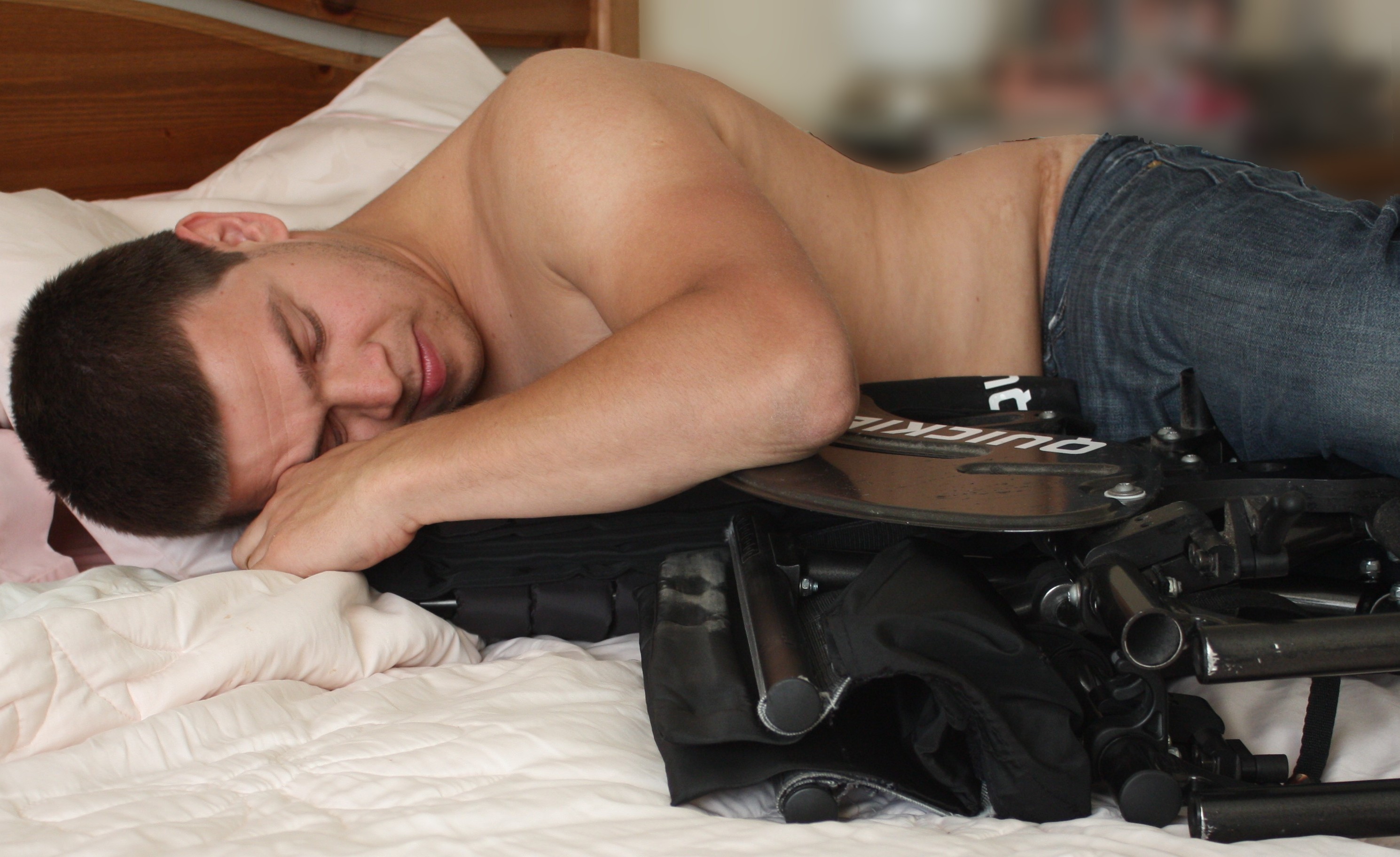Paul F Cockburn recently spoke with Robert Softely — co-creator of last year’s National Theatre of Scotland show Girl X — as he prepared to return to the stage with If These Spasms Could Speak. The new show, running as part of the Behaviour festival of live performance at The Arches in Glasgow, is a collection of funny, sad, touching and surprising stories that aims to explain how disabled people see their own bodies— and what they feel about them.
PFC: What’s the idea behind the show?
RS: As a disabled performer/artist, everything comes back to my disability in my work. Disabled people’s bodies are very important to how they’re seen by other people, but how do disabled people see their own bodies? How do they feel about their bodies? My presumption was that what non-disabled people imagine disabled people feel is not what they actually feel, so the basis of the show was meeting other disabled people and asking them in various ways how they felt about their bodies, and what stories about their bodies they would share. The task was about then bringing those stories — that are happy, sad or whatever — together in a piece that could help people get a more rounded perspective on how it all works.
PFC: So it’s largely based on true-life experiences?
RS: Yes. There’s some of my own stories in there, and there’s those from the people I interviewed and worked with. There’s also some inspired by other people which have been developed into something that’s not quite what actually happened — it’s a bit more tangental, but always based on some element of truth.
PFC: Is it primarily a monologue?
RS: There are a lot of visuals in the show, but it’s just me on stage! The way it’s set up, you start with some characters, then some of me, and some more characters; hopefully that structure makes it not too predictable, but it’s effectively a monologue.
PFC: What kind of reaction do you hope to get?
RS: It’s always a dangerous question, that; the moment you start waiting for a reaction, you’re probably going to be disappointed by what you get. All I want this piece to do is to make people realise that there are a large number of perspectives in this; that there’s not just one experience as a disabled person. I want people to see the variation within disabled people’s lives — the fact that some people couldn’t be happier, while others think it’s all tough.
PFC: Are audiences in for an uncomfortable ride?
RS: Possibly, although I do quite a lot at the start to make them more comfortable, and the auditorium is designed Cabaret-style — so people are sitting at their tables with their drinks and it’s all quite relaxed. That’s all very intentional to get over that moment of: “Oh my God, what’s happening here?” The performance starts off very friendly, all very nice — then it might go somewhere else!
PFC: Will you be touring the show at some point?
RS: Well, the show is funded through one of Creative Scotland’s new Creative Futures residencies; so it was developed with a particular theatre in mind. The primary focus was the Behaviour festival (at the Arches), but I now want to see where it will go after that.
PFC: How long has it taken to put the show together?
RS: We did the interviews mainly in November/December time, and some in January; we spent February developing the piece, writing it up and shaping it — and now it’s March! It’s been quite a quick process!
PFC: Outside of this, you have your own consultancy business, Flip, which supports arts organisations of all sizes to embed disability equality in what they do. Has it been difficult to balance working on the new show with your other commitments?
RS: At the moment there’s not a lot of time for anything else, but luckily it’s only really like that for this week! After the show I might give myself a day off!
© paul f cockburn
